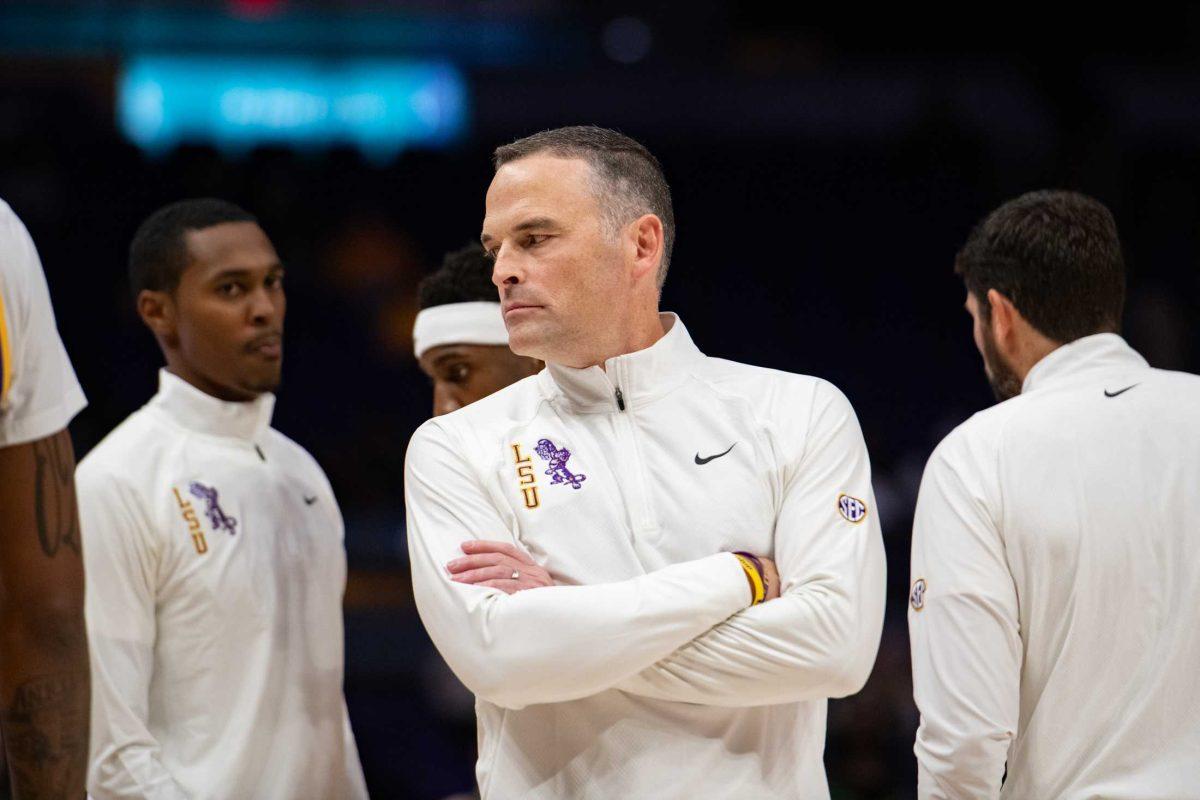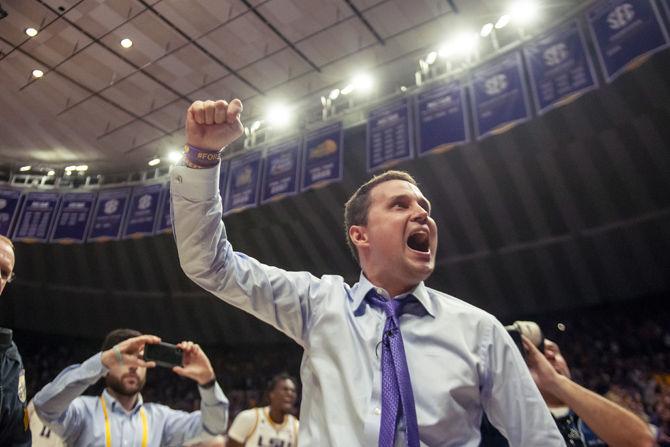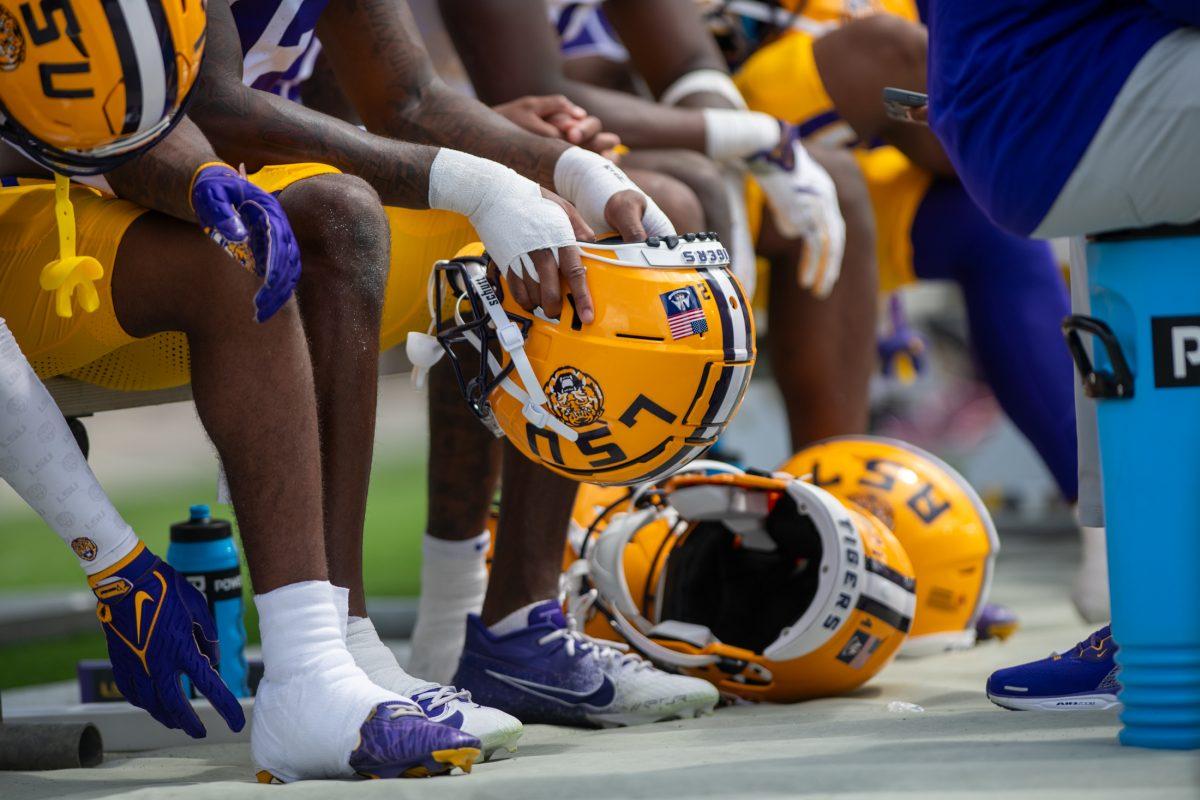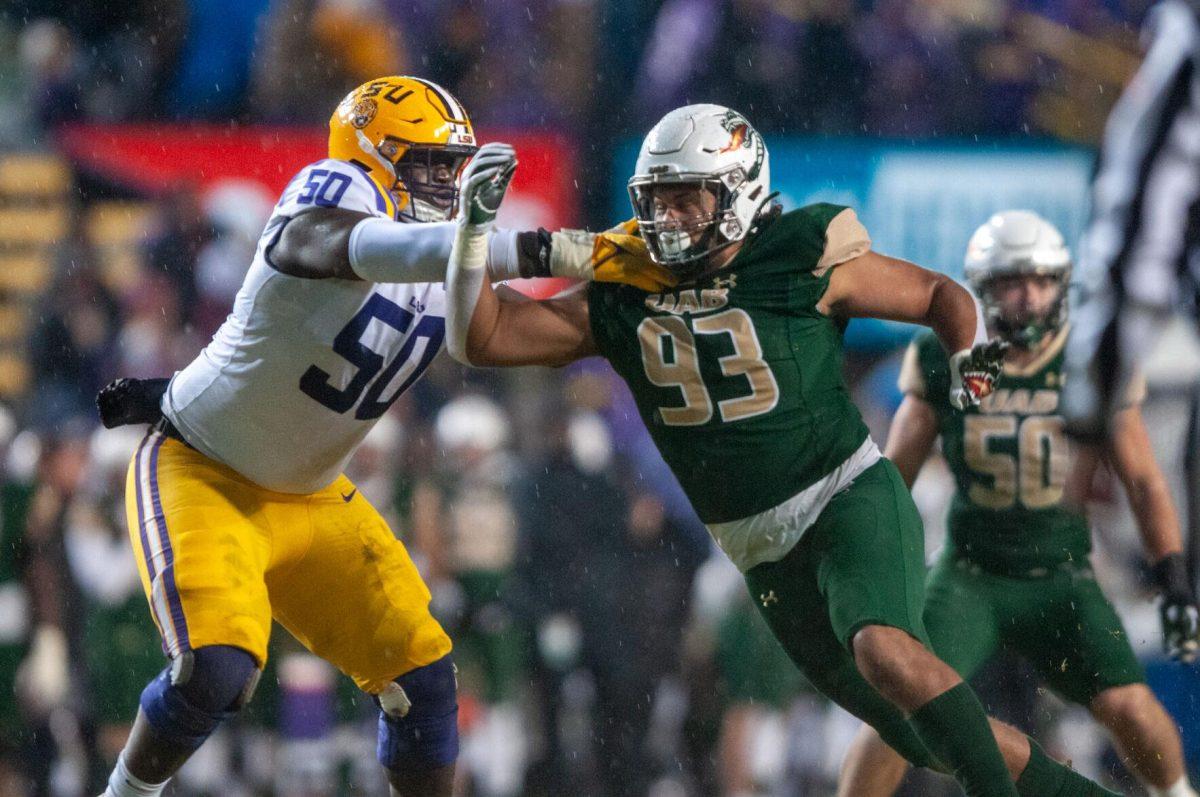Taking into account quality of opponent, LSU had its best offensive performance of the season against No. 19 Texas.
Its 85 points and 11 3-pointers were both the second-most the Tigers had notched all year, behind only the season opener against Mississippi Valley State, ranked No. 362 in the nation by KenPom (dead last).
It didn’t matter, as LSU’s inability to defend Texas’s multi-faceted offense eliminated any chance of winning in the 96-85 loss.
LSU came as close as seven after trailing by 22, with a 24-9 run in the beginning of the second half.
The Tigers couldn’t sustain it. They ran out of juice. That’s been a familiar story this year; LSU also stormed back and fell short in losses to Kansas State and Nicholls State.
This time was different, not because of the outcome, but because of how it happened and who was on the court.
LSU’s comeback was sparked almost entirely by the bench, not its starters.
Will Baker, Jalen Reed, Jordan Wright and Mike Williams III, who have started almost every game for the Tigers this season and are the usual offensive leaders, combined for eight turnovers and five points on two for 10 shooting in the first half.
Their struggles led to all of them being benched for parts of the first half.
Williams didn’t appear in the second half. Reed and Baker were both inserted for a few minutes in the second frame but relegated to the bench by the 10-minute mark after continuing to be ineffective.
Instead, it was Jalen Cook, making his season debut after previously being ineligible as a two-time transfer from Tulane, who led the reserve unit to the near comeback.
The only starter who responded out of the halftime break was Wright, who finished with a career-high 33 points on only 14 shots and aided in the comeback effort.
“I thought his leadership in the second half, from the halftime conversations, to the timeout huddles, to his energy and effort and communication on the floor was awesome,” head coach Matt McMahon said of Wright. “And that’s what we need from him.”
Moving on from the match with Texas, the goal for LSU is to find who’ll give consistent effort and help the team win. Too often this season, the answer hasn’t been the team’s stars.
Wright has had trouble this season with shooting efficiency, and Williams has so far had a middling 22-19 assist-to-turnover ratio. However, the biggest question marks have been in the team’s frontcourt.
Reed and Baker have both been inconsistent, particularly on the defensive end. Both have had bouts of missing effort, and their foot speed is sometimes taken advantage of.
In addition, they’ve lacked a certain amount of aggression on the boards at times, often failing to take advantage of their size and come up with rebounds. LSU has been out-rebounded in all five of its losses.
Reed leads the team with 34 turnovers, and Baker, once the team’s leading scorer, has been held to single digits in four of the last five contests.
McMahon said Baker has been dealing with an ongoing illness. Though Baker has certainly seemed to lack some of his former explosiveness, his struggles haven’t entirely been a question of health. He’s been schemed out by the other team’s defense in some games, and it’s been too easy to deny him quality looks in the post.
“Will’s gonna be fine,” McMahon said. “The biggest key is he just needs to forget about some of the challenges of the last few games and just come to practice, keep working hard.”
At their best, Baker and Reed have unique and valuable skillsets. Baker has elite scoring ability from all three levels, and Reed moves with good fluidity and vision as he drives to the net.
Recently, though, the more reliable options in the frontcourt have been reserves Derek Fountain and Hunter Dean. Fountain was last year’s starter at power forward for much of the year and Dean is a graduate transfer from George Washington.
Both players have shown great mobility on defense and the ability to be aggressive in switching or trapping when facing screens, which was key in slowing down Texas’ offense enough to make a run.
Dean’s impact in the center of the defense is integral. He serves as a sort of quarterback of the defense, communicating with everyone else on their assignments.
“Defensively he does a good job of, we call it, see it and fix it,” McMahon said. “He sees a lot of mistakes that are made and he’s able to fix them through his activity level.”
Fountain and Dean may have simplistic offensive games as screen-and-roll bigs, but they’ve each been reliable, something Reed and Baker haven’t always been.
Their styles also work with what Cook does best. Cook’s level-headedness allows him to make smart decisions in pick-and-roll and transition situations, and Fountain and Dean both are good at making themselves available on the move.
Fountain had 13 points against Texas, while Dean had 11, both reaching those marks efficiently and also screening well to create opportunities for others.
With Cook now in the mix as the unquestioned team leader, McMahon needs to identify who gels best with him and, ultimately, who the team can trust.
It doesn’t mean those players can’t be Baker, Reed or Williams. In LSU’s most recent game against Lamar, all of them looked more comfortable playing alongside Cook, who’s now in the starting lineup.
“It’ll just take a little bit of time to continue to build that chemistry,” McMahon said.
However, for LSU to be at its best, those decisions on who it can count on have to be made independently of who are supposed to be the star players.
The stars need to continue to improve and make the impact they’re capable of making. If they don’t, McMahon shouldn’t hesitate to make lineup changes and reward his reserve players’ effort.
“Who can impact winning? And that’s what we’re searching for,” McMahon said.













